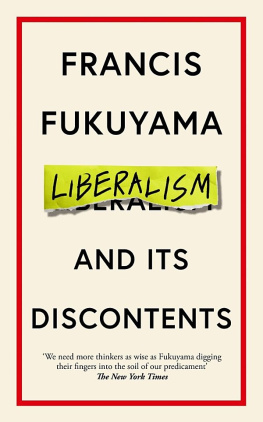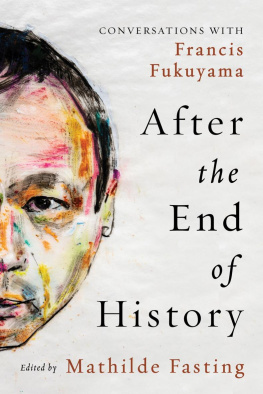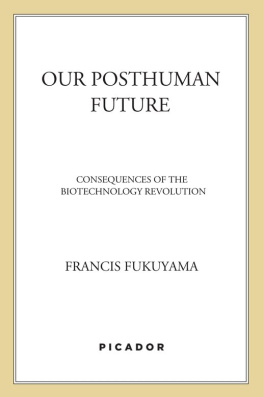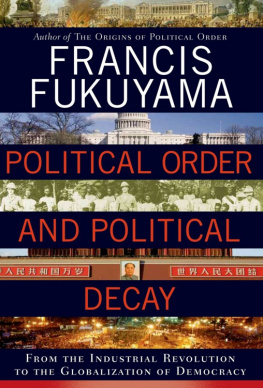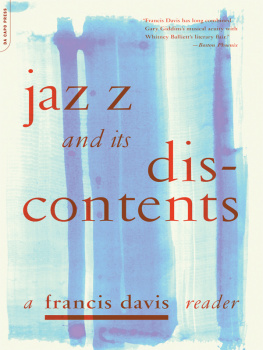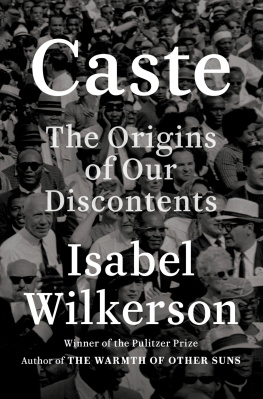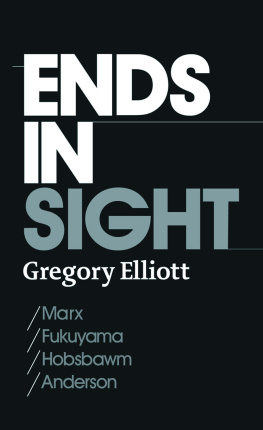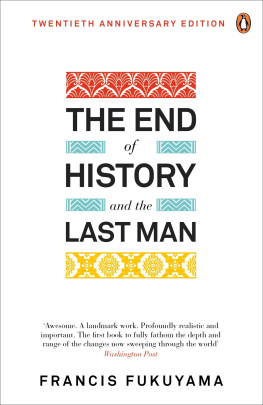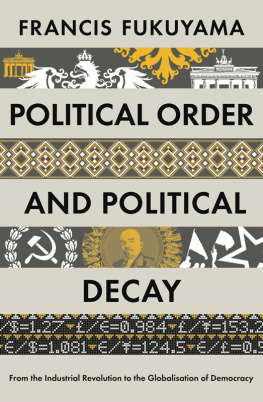Francis Fukuyama - Liberalism and Its Discontents
Here you can read online Francis Fukuyama - Liberalism and Its Discontents full text of the book (entire story) in english for free. Download pdf and epub, get meaning, cover and reviews about this ebook. year: 2022, publisher: Profile Books Ltd, genre: Politics. Description of the work, (preface) as well as reviews are available. Best literature library LitArk.com created for fans of good reading and offers a wide selection of genres:
Romance novel
Science fiction
Adventure
Detective
Science
History
Home and family
Prose
Art
Politics
Computer
Non-fiction
Religion
Business
Children
Humor
Choose a favorite category and find really read worthwhile books. Enjoy immersion in the world of imagination, feel the emotions of the characters or learn something new for yourself, make an fascinating discovery.
- Book:Liberalism and Its Discontents
- Author:
- Publisher:Profile Books Ltd
- Genre:
- Year:2022
- Rating:4 / 5
- Favourites:Add to favourites
- Your mark:
- 80
- 1
- 2
- 3
- 4
- 5
Liberalism and Its Discontents: summary, description and annotation
We offer to read an annotation, description, summary or preface (depends on what the author of the book "Liberalism and Its Discontents" wrote himself). If you haven't found the necessary information about the book — write in the comments, we will try to find it.
Liberalism and Its Discontents — read online for free the complete book (whole text) full work
Below is the text of the book, divided by pages. System saving the place of the last page read, allows you to conveniently read the book "Liberalism and Its Discontents" online for free, without having to search again every time where you left off. Put a bookmark, and you can go to the page where you finished reading at any time.
Font size:
Interval:
Bookmark:
This book is intended to be a defense of classical liberalism, or, if that term is too fraught with certain historical connotations, then what Deirdre McCloskey labels humane liberalism. and celebrated once again.
By liberalism, I refer to the doctrine that first emerged in the second half of the seventeenth century that argued for the limitation of the powers of governments through law and ultimately constitutions, creating institutions protecting the rights of individuals living under their jurisdiction. I do not refer to liberalism as it is used today in the United States as a label for left-of-center politics; that set of ideas, as we will see, has diverged from classical liberalism in certain critical ways. Nor does it refer to what in the United States is called libertarianism, which is a peculiar doctrine founded on hostility to government as such. I am not using liberal in the European sense either, where it designates center-right parties skeptical of socialism. Classical liberalism is a big tent that encompasses a range of political views that nonetheless agree on the foundational importance of equal individual rights, law, and freedom. viii
It is clear that liberalism has been in retreat in recent years. According to Freedom House, political rights and civil liberties around the world rose during the three and a half decades between
In established liberal democracies, it is the liberal institutions that have come under immediate attack. Leaders like Hungarys Viktor Orbn, Polands Jarosaw Kaczyski, Brazils Jair Bolsanaro, Turkeys Recep Tayyip Erdoan, and Americas Donald Trump were all legitimately elected, and have used their electoral mandates to attack liberal institutions in the first instance. These include the courts and justice system, nonpartisan state bureaucracies, independent media, and other bodies limiting executive power under a system of checks and balances. Orbn has been quite successful in packing the courts with his supporters and bringing the bulk of Hungarian media under the control of his allies. Trump was less successful in his attempts to weaken institutions like the Justice Department, the intelligence community, the courts, and the mainstream media, but his intention was much the same.
Liberalism has been challenged in recent years not just by populists of the right, but from a renewed progressive left as well. The critique from this quarter evolved from a chargecorrect in itselfthat liberal societies were not living up to their own ideals of equal treatment of all groups. This critique broadened over time to attack the underlying principles of liberalism itself, such as its positing of rights in individuals rather than groups, the premise of universal human equality on which constitutions and liberal rights ix have been based, and the value of free speech and scientific rationalism as methods of apprehending truth. In practice, this has led to intolerance of views that deviate from the new progressive orthodoxy, and the use of different forms of social and state power to enforce that orthodoxy. Dissident voices have been ousted from positions of influence and books effectively banned, often not by governments but by powerful organizations that control their mass distribution.
Populists on the right and progressives on the left are unhappy with present-day liberalism not, I would argue, because of a fundamental weakness in the doctrine. Rather, they are unhappy with the way that liberalism has evolved over the last couple of generations. Beginning in the late 1970s, economic liberalism evolved into what is now labeled neoliberalism, which dramatically increased economic inequality and brought on devastating financial crises that hurt ordinary people far more than wealthy elites in many countries around the globe. It is this inequality that is at the core of the progressive case against liberalism and the capitalist system with which it is associated. Liberalisms institutional rules protect the rights of everyone, including existing elites who are reluctant to give up either wealth or power, and who therefore stand as obstacles to the march towards social justice for excluded groups. Liberalism constituted the ideological basis for a market economy, and hence in the minds of many is implicated in the inequalities entailed by capitalism. Many impatient young Gen Z activists in America and Europe regard liberalism as an outmoded baby boomer perspective, a system that is incapable of reforming itself.
At the same time, the understanding of personal x autonomy expanded relentlessly, and came to be seen as a value that trumped all other visions of the good life including those put forward by traditional religions and culture. Conservatives saw this as a threat to their most deeply held beliefs, and felt that they were being actively discriminated against by mainstream society. They felt that elites were using a host of undemocratic meanstheir control over the mainstream media, universities, the courts and executive powerto advance their agenda. The fact that conservatives won any number of elections in this period in the United States and Europe did not seem to make any difference in slowing the tidal wave of cultural change.
These discontents with the way that liberalism has evolved in recent decades have led to demands from both right and left that the doctrine be replaced root and branch by a different kind of system. On the right, there have been efforts to manipulate the electoral system in the United States in order to guarantee that conservatives remain in power, regardless of democratic choice; others have flirted with the use of violence and authoritarian government as a response to the threat they see. On the left, there are demands for a massive redistribution of wealth and power, as well as recognition of groups rather than individuals based on fixed characteristics such as race and gender, as well as policies to equalize outcomes between them. Since none of this is likely to happen on the basis of a broad social consensus, progressives are happy to continue to make use of courts, executive agencies, and their substantial social and cultural power to further this agenda.
These threats to liberalism are not symmetrical. The one coming from the right is more immediate and political; the xi one on the left is primarily cultural and therefore slower-acting. Both are driven by discontents with liberalism that do not have to do with the essence of the doctrine, but rather with the way in which certain sound liberal ideas have been interpreted and pushed to extremes. The answer to these discontents is not to abandon liberalism as such, but to moderate it.
The plan of this book is as follows. Chapter 1 will define liberalism, and put forward the three major historical justifications for it. Chapters 2 and 3 will look at how economic liberalism evolved into the more extreme form neoliberalism and provoked strong opposition and discontent with capitalism itself. Chapters 4 and 5 will examine how the basic liberal principle of personal autonomy was absolutized, and turned into a critique of the individualism and the universalism on which liberalism rested. Chapter 6 deals with the critique of modern natural science that was pioneered on the progressive left but soon spread to the populist right, while chapter 7 describes how modern technology has challenged the liberal principle of free speech. Chapter 8 questions whether either the right or left have viable alternatives to liberalism; chapter 9 looks at the challenge to liberalism posed by the need for national identity; and chapter 10 lays out the broad principles required to rebuild faith in classical liberalism.
I do not intend this book to be a history of liberal thought. There are dozens of important writers who have contributed to the liberal tradition, and there have There are hundreds if not thousands of books explicating their respective contributions. I want to focus instead on what I xii regard as the core ideas underlying contemporary liberalism, as well as some of the grave weaknesses afflicting liberal theory.
Font size:
Interval:
Bookmark:
Similar books «Liberalism and Its Discontents»
Look at similar books to Liberalism and Its Discontents. We have selected literature similar in name and meaning in the hope of providing readers with more options to find new, interesting, not yet read works.
Discussion, reviews of the book Liberalism and Its Discontents and just readers' own opinions. Leave your comments, write what you think about the work, its meaning or the main characters. Specify what exactly you liked and what you didn't like, and why you think so.

